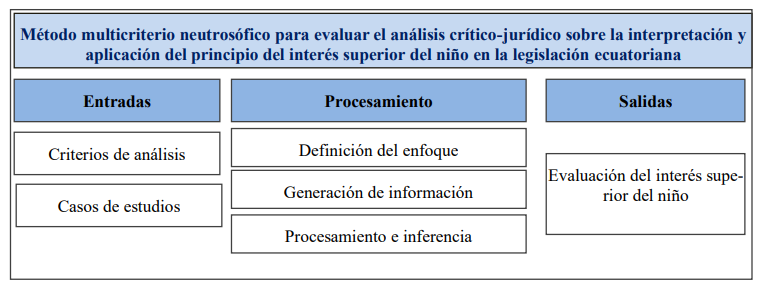Neutrosophic multicriteria method to evaluate the critical-legal analysis on the interpretation and application of the principle of the best interest of the child in Ecuadorian legislation
Main Article Content
Abstract
A critical-legal study of the interpretation and use of the principle of the best interests of the child in Ecuadorian law, assessing its effectiveness in safeguarding the rights of minors in the judicial system, represents a fundamental activity for guaranteeing children's rights. This study focuses on the implementation of a neutrosophic multi-criteria method to evaluate the critical-legal analysis of the interpretation and application of the principle of the best interests of the child in Ecuadorian legislation. The findings indicate that, although Ecuadorian law has established the best interests of the child as a fundamental principle, its implementation poses challenges in terms of legal guarantees and procedures. Using the inductive method, irregularities in the interpretation of judicial law were detected, highlighting the need for a more equitable and uniform approach to safeguarding children's rights. In contrast, the deductive approach made it possible to situate these findings within the national and international legal context, highlighting the relevance of agreements such as the Convention on the Rights of the Child.
Downloads
Article Details

This work is licensed under a Creative Commons Attribution 4.0 International License.

